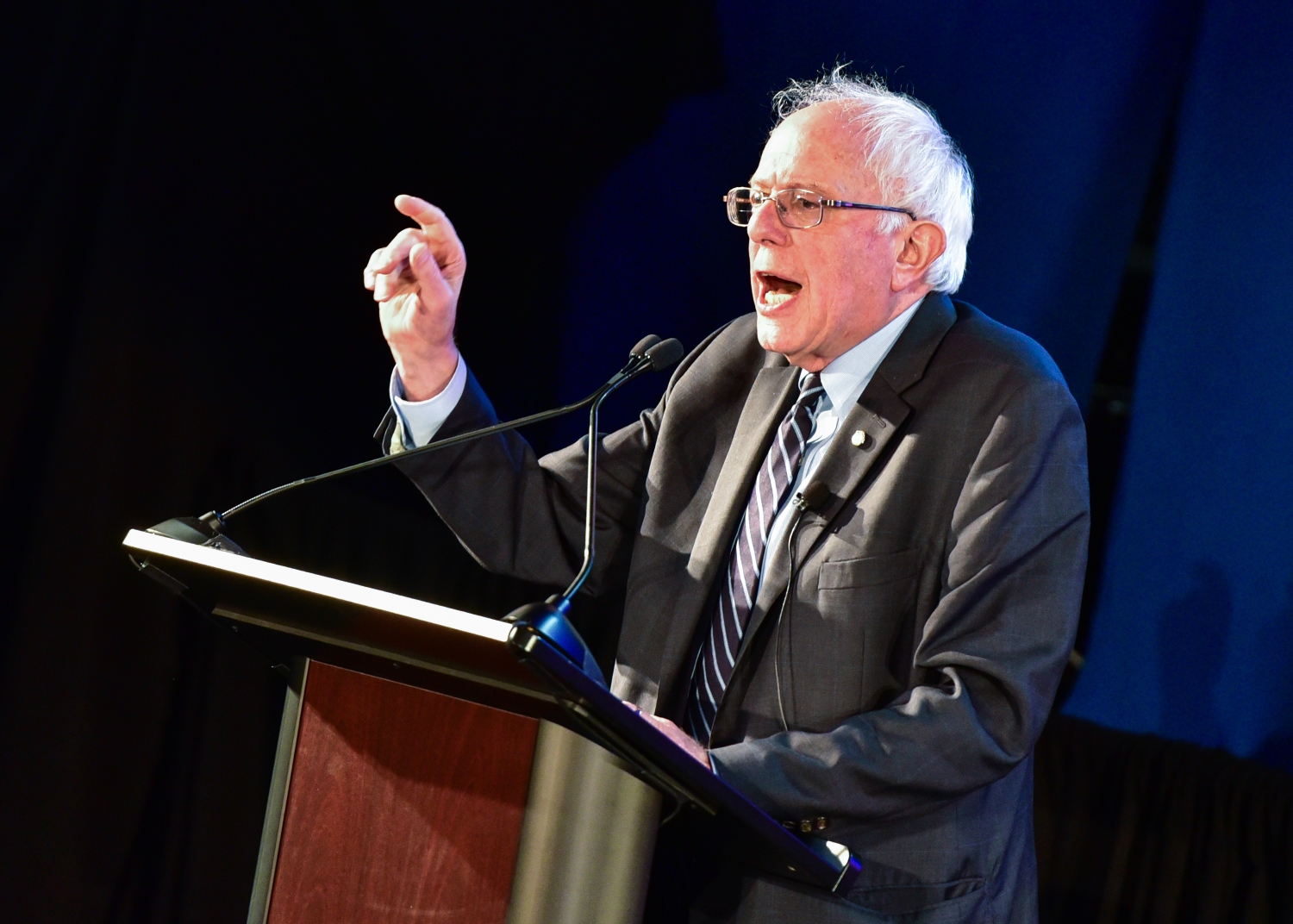Can Posting Political Stuff on Social Media Get You Fired?
While it might be tempting to throw a Trump tantrum or rant about Benghazi on Facebook and Twitter, it could prevent you from being hired — or even get you canned.
Here at Tom’s Guide our expert editors are committed to bringing you the best news, reviews and guides to help you stay informed and ahead of the curve!
You are now subscribed
Your newsletter sign-up was successful
Want to add more newsletters?

Daily (Mon-Sun)
Tom's Guide Daily
Sign up to get the latest updates on all of your favorite content! From cutting-edge tech news and the hottest streaming buzz to unbeatable deals on the best products and in-depth reviews, we’ve got you covered.

Weekly on Thursday
Tom's AI Guide
Be AI savvy with your weekly newsletter summing up all the biggest AI news you need to know. Plus, analysis from our AI editor and tips on how to use the latest AI tools!

Weekly on Friday
Tom's iGuide
Unlock the vast world of Apple news straight to your inbox. With coverage on everything from exciting product launches to essential software updates, this is your go-to source for the latest updates on all the best Apple content.

Weekly on Monday
Tom's Streaming Guide
Our weekly newsletter is expertly crafted to immerse you in the world of streaming. Stay updated on the latest releases and our top recommendations across your favorite streaming platforms.
Join the club
Get full access to premium articles, exclusive features and a growing list of member rewards.
"So here I am... dabbing on Abby, sobbing for Freddie Gray and raising a fist for Dems. It's a conflicted day." - @misssmith11
That was one of my recent tweets — one that was promptly retweeted by a couple of my followers and liked by a few others, including @LaptopMag, an official account of my employer. My Facebook page is a political pastiche of news pertaining to womanism, Black Lives Matter, reproductive health and gentrification, with a healthy dose of cute animals, cosplay, technology and science to even things out.

My social media accounts fly in the face of the advice that most HR experts give to anyone seeking to be hirable. However, I'm extremely lucky to work in an industry, and have a job, that allows me to be myself in all my unabashed opinionatedness. But not everyone has that luxury. So how far can — and should — you go in expressing your G.R.A.P.E.S. on social media?
MORE: Why I Stopped Using Facebook, and You Should Too
G.R.A.P.E.S. of Wrath
In case you're unfamiliar with the term, G.R.A.P.E.S. is human-resources shorthand for conversation topics that are taboo in the workplace. The acronym stands for "guns, religion, abortion, politics, economics and sexuality." Think of it as a less-fun riff on the late comedian George Carlin's "Seven Words You Can Never Say on Television" bit.
It's good to have the G.R.A.P.E.S. restriction around the workplace, as it cuts down on potential friction and lawsuits. But when you're off the clock, living as a private citizen, the rules can get a bit fuzzy.
It's tempting to go on a cathartic rant about gun control, immigration, racism, abortion or LGBTQ issues on social media, especially when your least favorite pundits share their opposing views in public. However, those talking heads get paid to espouse their viewpoints.
Get instant access to breaking news, the hottest reviews, great deals and helpful tips.

You, on the other hand, are most likely paid to put on a good face as the representative of your employer. And it's been proven time and time again that social media postings, like diamonds, are forever. It's a lesson learned by Wendy Bell, who was fired from her longtime job as a Pittsburgh newscaster after she posted racially insensitive comments on Facebook.
You might have also heard about Moe Wahdan, a former employee of real estate company Holton-Wise Property Group, who was fired after threatening Golden State Warriors star Steph Curry and his family in a series of ill-advised tweets. People who happened upon the post reached out to the company to report the employee's inappropriate words.
Dave Ulrich, co-author of the book "HR From the Outside In" (McGraw-Hill Education, 2012), advises employees to exercise caution and to understand that a personal posting on a social media outlet has the potential to become a public document.
"While employees have a right to private lives, they should also be aware that social media accounts are accessible to employers," Ulrich told us. That means that the time you dressed up in an offensive costume at that wild Halloween party could potentially be a fireable offense or prevent you from being hired.
Know Your Rights
In the quest to do some corporate C.Y.A., companies have gone on the social media monitoring offensive, asking for employee passwords to personal accounts. Companies are citing myriad reasons that employers might request access in the name of protecting trade secrets or keeping the company shielded from legal liabilities.

As a result of what many see as an overreach, states have started introducing legislation to combat the practice. For example, New York has several pending bills that would protect the privacy of employees and prospective employee accounts, and stop companies or schools from requiring workers or students from divulging social media passwords. Laws differ from state to state, so you'll want to find out what's on the books where you live.The National Conference of State Legislature is a good resource to learn whether or not your social media rights are protected.
If you do decide to wade into the political crapstorm that is social media, your right to kvetch about Trump or Hillary is clearly protected by the First Amendment, according to Lee Tien, a senior staff attorney at the Electronic Frontier Foundation.
"The U.S. Supreme Court found in Reno vs. ACLU... that speech on the internet is entitled to full First Amendment protection," Tien said. I can't see how anyone could distinguish an email or text from a Facebook post for First Amendment purposes."
And yes, the above protections carry over to your likes and reactions to posts. It's protected speech, akin to putting a political bumper sticker on your car. That means you can share your political opinion without fear of being fired or disciplined, as long as you don't talk about a protected class (race, age, religion and sex) in your rant.
However, the rules don't apply to most private companies, which can fire you for any reason whatsoever, as Tien noted in a 2015 article for The New York Times — unless you're lucky enough to work in some of the states that are actively working to pass laws to protect your social media privacy such as like New York, Minnesota or Illinois. New York has pending laws that will prevent employers from requesting social media logins — laws that are already on the books in California and Colorado.
Bottom Line
While your employer can't give you the ax for exercising your rights, that doesn't mean you can't be let go for another, related reason — especially if you work for a private company without a union or are employed in a "right to work" state. You could be considered an "at will" employee and could be terminated for any reason that isn't prohibited by law.
Ideally, the only harm in posting your political views on social media should be getting into a flame war with other passionate sideline politicians. But in the interest of remaining employable, you should watch what you say regardless.

Sherri L. Smith has been cranking out product reviews for Laptopmag.com since 2011. In that time, she's reviewed more than her share of laptops, tablets, smartphones and everything in between. The resident gamer and audio junkie, Sherri was previously a managing editor for Black Web 2.0 and contributed to BET.Com and Popgadget.
 Club Benefits
Club Benefits










